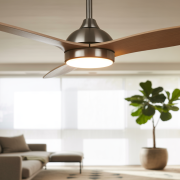If you’re like most homeowners, you probably use your appliances daily. Whether it’s the dishwasher, clothes dryer, refrigerator, or oven, these machines make people’s lives easier. But, what happens when they break down? Repairing them can be expensive and time-consuming without the assistance of a home warranty company. That’s why it’s important to take steps to help your appliances last as long as possible.
Here’s how to make your home appliances last longer:
1. Always Follow Manufacturers’ Instructions
When making home appliances last longer, always follow the manufacturers’ instructions. This may seem like an obvious piece of advice, but it’s often overlooked. The care and use instructions that come with your appliances are there for a reason, and following them can help ensure that your appliances have a long life.
In addition to following the manufactures’ instructions, it’s also a good idea to do some additional reading. Plenty of online resources offer tips for making home appliances last longer. By learning about proper care and maintenance, you can make sure that your appliances are always in tip-top condition.
2. Clean Your Appliances Regularly
A washing machine or dryer, stove, refrigerator, or dishwasher are big investments. You expect these appliances to work properly and last for many years. In order to get the most out of your appliances, it’s important to clean them regularly. Buildup from dirt, dust, and food can affect the efficiency of your appliances, making them break down faster. In some cases, it can also be a fire hazard.
To prevent such instances, take some time each week to clean your appliances. For example, you can wipe down the outside of your fridge with a damp cloth. It’d also be best if you also cleaned the inside of your fridge regularly, including the shelves and drawers. Also, cleaning the surroundings to avoid building dust also helps, you can look for a professional home cleaners if you don’t have time for this.
3. Be Careful With What You Put In Them
While it’s important to clean your appliances regularly, it’s also a must to be careful with what you put in them. Certain items, such as food and grease, can cause damage to your appliances. When cooking, be sure to use appropriate cookware. For example, avoid using metal utensils on non-stick pans, as this can damage the coating.
In addition, be careful not to overload your washing machine or dryer. This can put unnecessary strain on the appliance and cause it to break down prematurely.
4. Have Them Serviced Regularly

Young Woman Looking At Repairman Repairing Dishwasher In Kitchen
Like your car, your home appliances need to be serviced regularly as well to keep them running properly. For example, you should service your fridge every two years and your oven every five years. A technician will clean and inspect the appliance during a service, looking for potential problems. Servicing your appliances can help prevent major issues from developing, leading to an early breakdown. Try a few sites like http://www.appliancerepairboiseid.com/ to find the best repair service deals.
5. Protect Them From Power Surges
Appliance longevity can be affected by several factors, including power surges. These spikes in electrical current can damage circuit boards and other sensitive components, leading to costly repairs or even premature replacement. To help protect your appliances from power surges, consider investing in a surge protector. This simple device helps absorb excess electrical current, safeguarding your appliances from damage.
In addition, be sure to unplug appliances during severe thunderstorms or when they’re not in use for extended periods.
6. Allow Enough Space For Ventilation
Another way to help extend the life of your home appliances is to allow enough space for ventilation. This is especially important for appliances that generate heat, such as furnaces, dryers, and stoves. When these appliances are properly ventilated, they don’t have to work as hard to keep the area around them cool, prolonging their lifespan.
Furthermore, good ventilation helps prevent moisture buildup, damaging electrical components and leading to rusting. By taking a few simple steps to ensure proper ventilation, you can help your home appliances last longer.
7. Keep Them In Good Working Order
Like any piece of machinery, your home appliances require regular maintenance to keep them running properly. For example, you should vacuum the coils on your fridge every six months to prevent dust buildup. It’d help to clean the lint trap in your dryer after each use. Such simple tasks help ensure that your appliances are always in good working order.
Conclusion
While every appliance will eventually need to be replaced, there are several things you can do to help extend the life of your home appliances. By taking proper care of your appliances and having them serviced regularly, you can help ensure that they provide years of dependable service. In addition, be sure to take steps to protect your appliances from power surges and keep them in good working order.













[…] your home appliances is a big decision requiring careful planning and thinking. Thus, it’s worth the time and effort […]